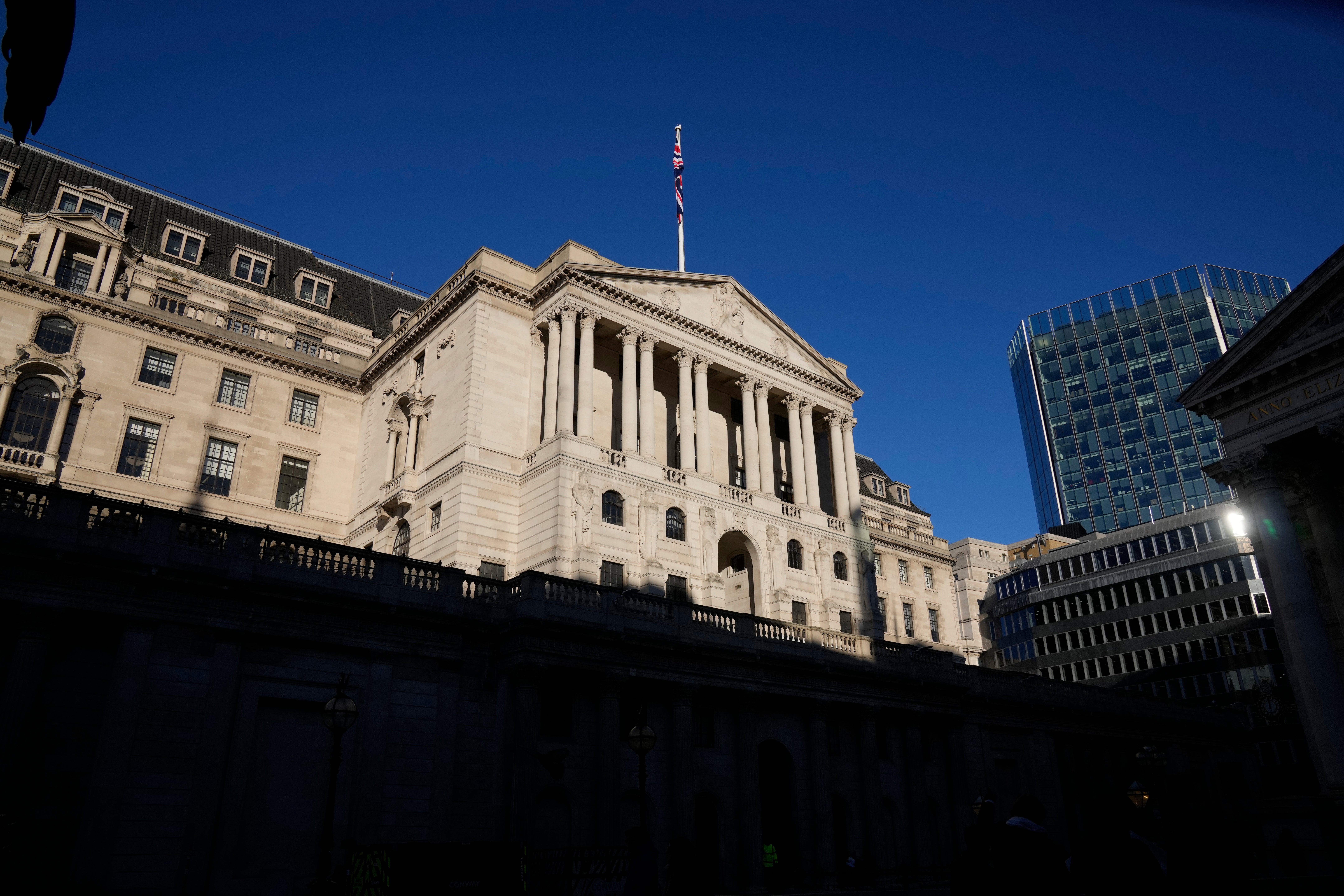UK inflation falls to Bank of England's 2% target rate for first time in nearly 3 years
Inflation in the U.K. has returned to the Bank of England’s target rate of 2% for the first time in nearly three years

Inflation in the U.K. returned to the Bank of England's target rate of 2% for the first time in nearly three years, official figures showed Wednesday, a development that has been seized on by the governing Conservative Party that its economic plan is “working” ahead of the July 4 election.
The Office for National Statistics said inflation, as measured by the consumer prices index, fell to 2% in the year to May from 2.3% the month before with food prices providing the biggest downward contribution.
Though the decline merely means that prices are rising at a slower rate than they have for the past few years, Conservative Prime Minister Rishi Sunak said the fall was further evidence that the “economy has now turned a corner.”
However, Rachel Reeves, who will become Treasury chief if the main opposition Labour Party wins the election, said working people are “worse off," with mortgage rates higher than they have been for years and taxes at a 70-year high.
The fall in inflation follows nearly three years of above-target inflation. The last time inflation was at 2% was in July 2021 before prices started to shoot up, first as a result by supply chain issues during the coronavirus pandemic and then by Russia’s invasion of Ukraine, which pushed up energy costs.
Despite the decline, few economists think the Bank of England will reduce its main interest rate from 5.25% on Thursday. Some policymakers are still concerned over the scale of price rises in the crucial services sector and the pace of wage increases, which raise the risks of an inflation rebound if interest rates are cut too soon, making an August reduction more likely.
“Despite this landmark fall in inflation, concerns over both underlying price pressures and changing policy in the run-up to a general election means a June interest rate cut is almost certainly off the table," said Suren Thiru, economics director at The Institute of Chartered Accountants in England and Wales
Though the bank is independent from government, there's also a general expectation that policymakers will hold the line during an election campaign.
The Bank of England, like the U.S. Fed and other central banks, raised interest rates aggressively in late 2021 from near zero to counter the rapid increase in inflation, which hit a high above 11%.
Higher interest rates — which cool the economy by making it more expensive to borrow — have helped ease inflation, but they’ve also weighed on the British economy, which is barely growing.